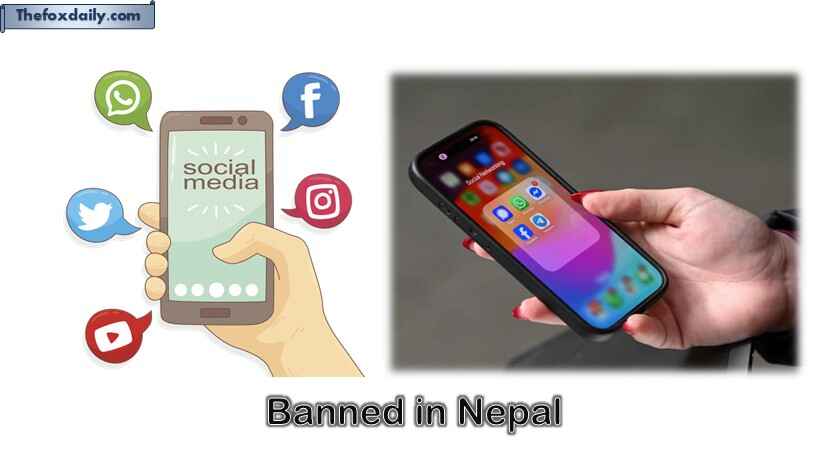
Nepal has imposed a ban on Facebook, Instagram, WhatsApp and more than a dozen other big social media sites after accusing them of failing to comply with regulations.
Human Rights and press freedom organizations criticized the restriction, which went into force at midnight on Thursday. Prime Minister KP Sharma Oli’s government in Nepal was accused of restricting free expression and hurting businesses.
Following their failure to register with the government in accordance with Nepal’s new social media regulations, the Oli government announced that it had banned the 26 social media platforms and messaging applications, which also included X, Reddit, LinkedIn, Pinterest, and Signal.
In response to a court ruling, the ministry of communications and information technology claimed it had given the companies seven days to register, but none of them had done so. According to a ministry notice, an order was later issued to “deactivate” the platforms.
TikTok was one of just five businesses who complied with the ruling and were exempt from restrictions.
Over the weekend, businesses and Nepal’s crucial tourism sector—which mainly depends on social media to market, connect, and interact with clients both locally and internationally—were severely impacted by the nearly complete ban.
Many Nepalese also have family members who live and work overseas and communicate with them via social media and messaging apps.
Dozens of journalists gathered in Kathmandu, the country’s capital, on Sunday to demonstrate against the restrictions. They held posters that read, “Freedom of expression is our right,” “democracy hacked, authoritarianism back,” and “no shutdown of social networks, no silencing of voices.”
The Committee to Protect Journalists, an international nongovernmental organization, issued a statement cautioning that the prohibition created a “dangerous precedent for press freedom.”
Oli, the PM, hit back at critics, saying he would not tolerate the “nation being undermined”.
“The nation’s freedom is more important than a few people losing their jobs. In a speech on Sunday, Oli questioned how it is acceptable to disobey the law, reject the constitution, and show disrespect for national sovereignty, independence, and dignity.
Although there are still many restrictions on the right to free speech in Nepal, some claim that the Oli government is going too far, which is concerning. Due to worries about hate speech and cybercrime, TikTok was banned for nine months in 2023. However, once the company agreed to register with the government, it was allowed to reopen.
In Nepal’s parliament, a number of draft measures pertaining to social media and press freedom are being discussed. These bills might allow the government to shut down newspapers and cancel journalist licenses, as well as punish or imprison individuals for information that is considered to be against the “national interest.”
For breaking news and live news updates, like us on Facebook or follow us on Twitter and Instagram. Read more on Latest World on thefoxdaily.com.






COMMENTS 0